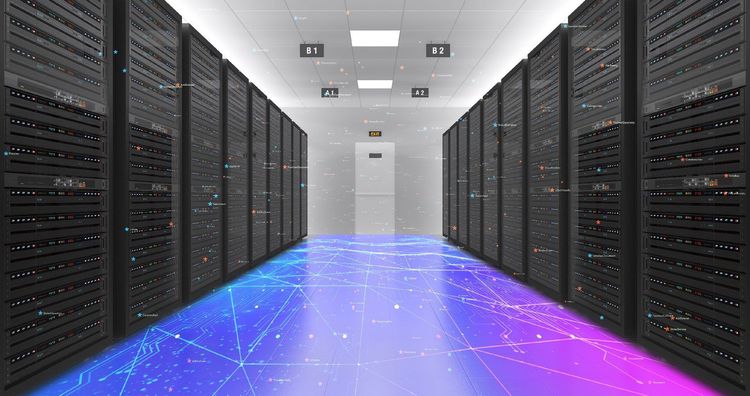Published on 4/17/2024 by Emilie SOLÈR
Last updated : 11/7/2025
This article explores what a virtual machine is, how it works, and why it has become essential for IT professionals and businesses of all sizes.
What is a virtual machine?
A virtual machine is a software representation of a physical computer. It works in isolation on a host system using software called a hypervisor. The hypervisor acts as a platform that allows multiple guest operating systems to run simultaneously on a single physical computer, using its resources like processor, memory, and storage. This virtualization technology creates several independent and secure virtual environments, providing great flexibility and better use of hardware resources.
How does a virtual machine work?
The operation of VMs is based on the concept of virtualization. Virtualization allows a physical computer, called the host, to divide its resources—such as memory, processor, and storage—to create multiple isolated or "guest" environments. These environments are fully operational and independent of each other. The software that manages this segmentation is known as hypervisor.
What are the different types of virtualization?
Virtualization comes in many forms, each tailored to specific business needs. The main types include:
This is the most common form of virtualization. It divides a physical server into several independent virtual servers. Each virtual server can run its own operating system and applications, optimizing resource utilization and reducing operating costs.
Also known as a virtual desktop, this approach centralizes workstations on a server in the data center. Users access their desktops from a variety of devices, making remote work easier and improving data security.
These various virtualization methods allow companies to maximize efficiency, reduce costs and increase the flexibility of their IT infrastructures.
What are the practical uses of VMs in companies?
Virtual machines are used in a variety of contexts within organizations, including:
- Server Consolidation: By reducing the number of physical servers needed, organizations can reduce energy, physical space, and maintenance costs.
- Development and test environments: VMs can quickly create isolated environments for the development and testing of new or updated applications, without the risk of disrupting existing operations.
- Disaster Recovery: Virtual machines can be configured to get started quickly in the event of a server failure, enabling faster and more efficient disaster recovery after a failure.
- Virtual desktops: VMs allow employees to access their work applications and data securely, regardless of their location, thus facilitating telework and professional mobility.
What are the advantages of virtual machines?
Isolation and Safety
One of the main advantages of VMs is their ability to isolate environments from each other. If one virtual system is compromised, the other systems remain protected. This isolation also contributes to better management of testing and deployment of new applications without risking the integrity of production systems.
Savings and Efficiency
Virtualization enables more efficient use of physical resources, reducing the need to invest in additional hardware. This allows companies to reduce their capital and operational expenses through more flexible management of their IT capabilities.
Flexibility and Scalability
Virtual machines can be configured to meet a variety of workload needs, and they can be easily resized based on fluctuating demands. This flexibility is essential for growing businesses or those with significant seasonal needs.
The UNIVIRTUAL Virtual Machines offer
UNIVIRTUAL offers a range of virtual machine solutions adapted to various professional needs. Whether for virtual desktops (Virtual Workstation) or virtual desktops (Virtual Desktop), UNIVIRTUAL offers secure and efficient work environments, accessible from anywhere. Our offering includes advanced features like automatic backups, enhanced isolation, and comprehensive protection against cyber threats.
To see how our virtualization solutions can transform your IT infrastructure, visit our dedicated page or contact us directly to discuss your needs.





